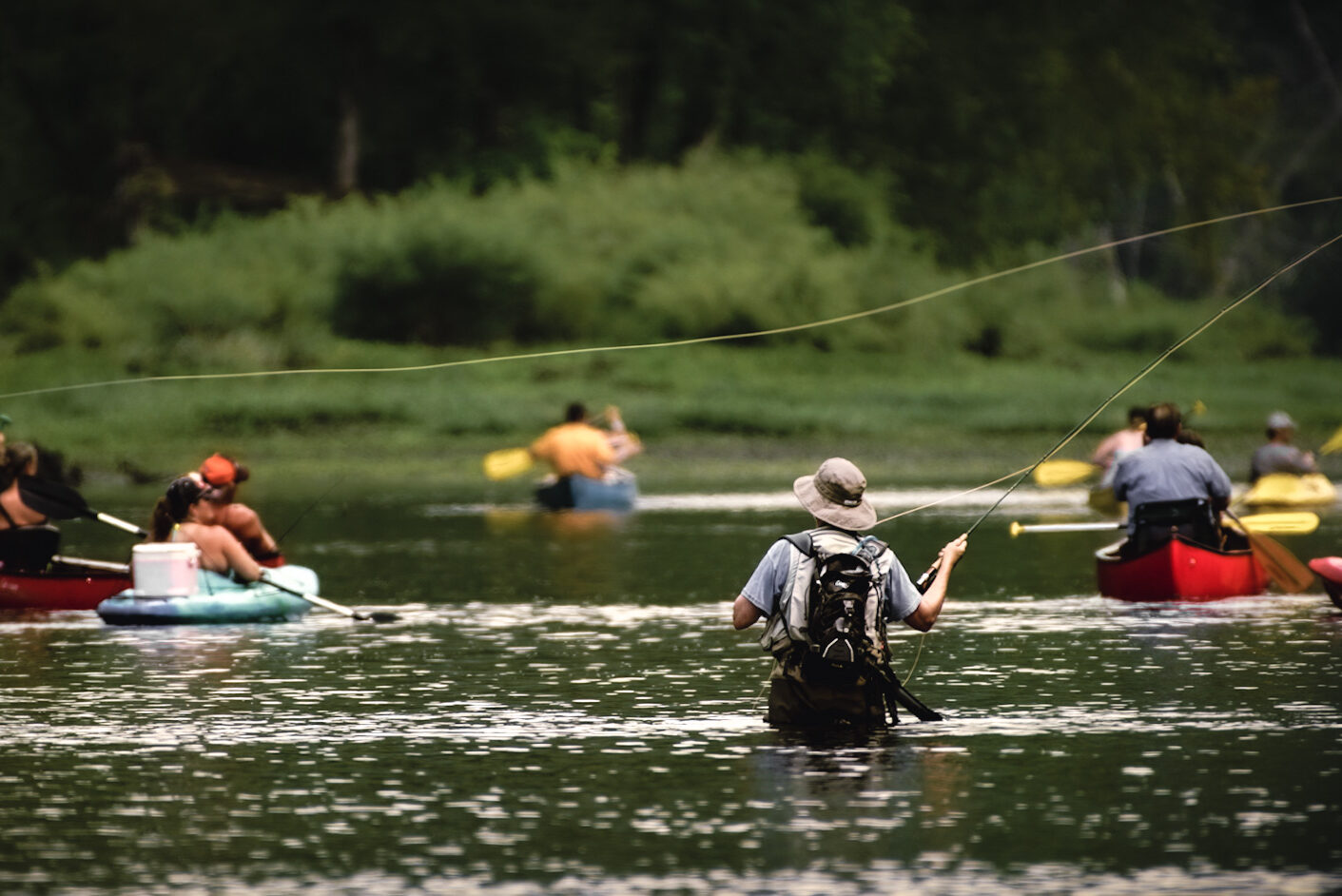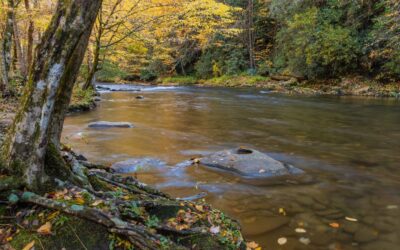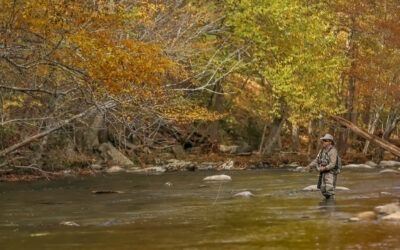Reducing River Overcrowding
Water is a public resource utilized by anglers, boaters, canoers and kayakers, and other recreationists. With a significant increase of recreational use in recent years, overcrowding on Tennessee’s rivers has reached a critical level and solutions are needed so we can all enjoy this natural resource.
Did you Know?
1.25
anglers in Tennessee
commercially-guided trips on the Ocoee River each year
$1.2
in economic output generated by fishing in Tennessee
Sharing Access to a Public Resource
Commercial canoe and kayak rental services have grown quickly and continue to expand. Overcrowding on Tennessee’s rivers has reached a critical level and solutions are needed.
Anglers and private paddlers across the state have voiced concerns that commercial operators have come to practically dominate Tennessee’s most cherished rivers and public access points. Many commercial operators have few to no rules requiring safe and fair operation of paddlecrafts in these public areas. Without basic rules in place, heavy traffic too often drives individual users off rivers or can lead to safety issues and unnecessary damage to habitats.
In 2020, a Federation-led effort to better share Tennessee’s rivers found some success with the TWRA paddlecraft Rule 1660-04-01. The Rule requires all commercial paddlecraft rental services to obtain a permit, meet specified safety standards, and document the number of commercial trips they generate and on what portions of the rivers.
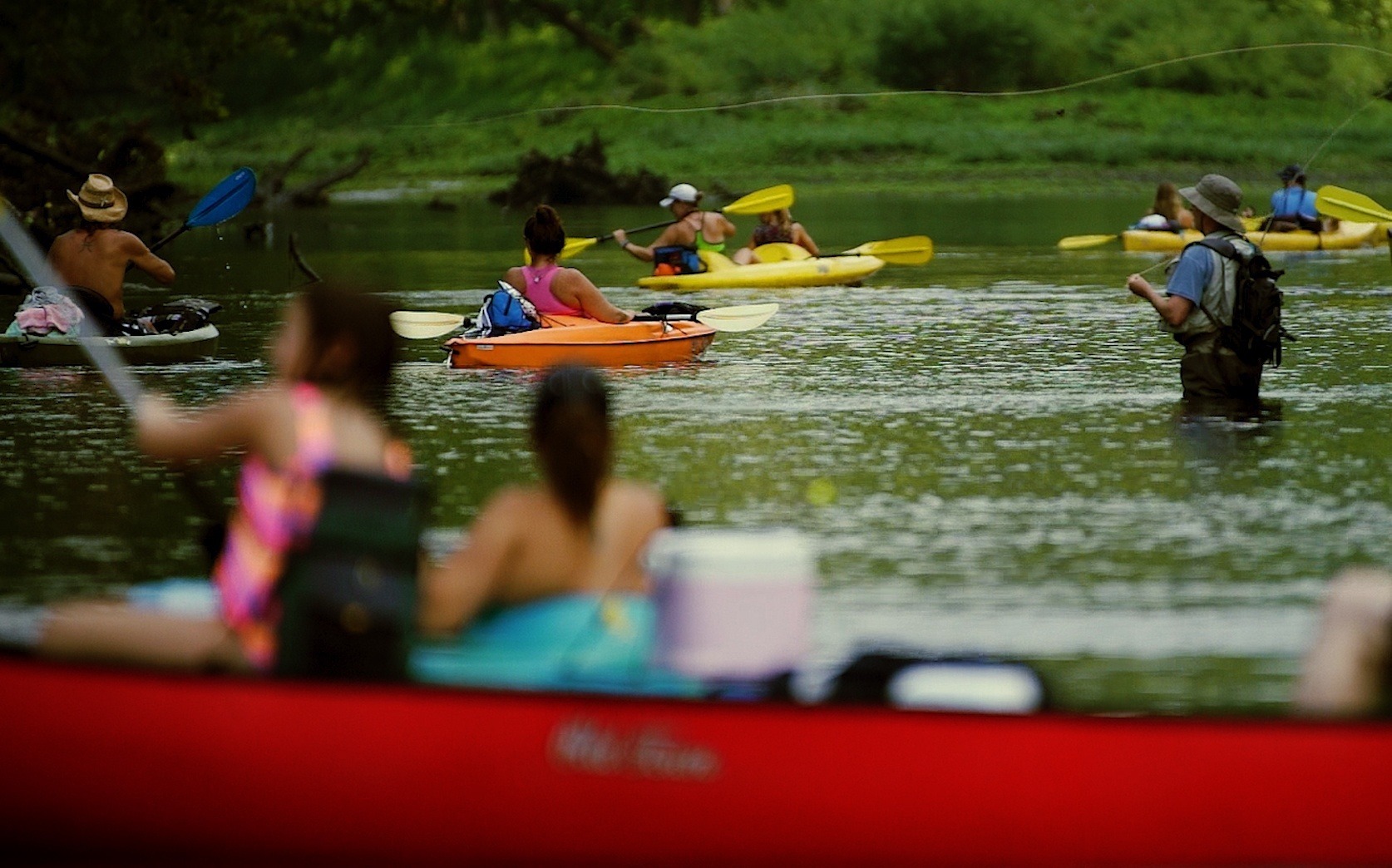
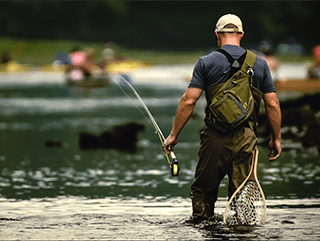
While this was a victory, there is still more work to be done.
A key aspect of conservation is for those who utilize a natural resource to contribute in some way to managing that resource. Currently, much of the funding for stream and river conservation comes from anglers and the special taxes on their equipment and license purchases.
The next step in the battle for shared rivers is increasing funding. Currently, anglers are paying the entire freight for the management and enforcement on our rivers and streams. Commercial paddlecraft operators pay no fees for use of Tennessee’s public rivers and streams. With the 2020 paddlecraft Rule, data is now being collected on the volume of commercial paddle trips in Tennessee, which will be needed to develop a fee structure for paddlecraft operators.
The Federation is pressing for a process to create river-specific recreational use management plans. In the meantime, outdoorsmen and recreationists in Tennessee can continue the push for safe and fair use of our waterways by joining the Share Our Rivers coalition and raising voices any time an issue of overcrowding or unsafe use occurs.
Speak out
Help lead Tennessee's wildlife and habitat conservation movement by making your voice heard.
Give
Your generosity helps manage wildlife populations and restore habitats for a more vibrant Tennessee.
Sign up for action alerts
Learn More
Advocating for Sound Policy at the 2023 General Assembly
Every year, Tennessee Wildlife Federation tracks the legislation at state and federal levels to advocate for bills that will advance conservation and against those that will negatively impact wildlife, lands, outdoor recreation, and more.
Fly Fishing is Not Hard: Here’s What to Expect
Casting a fly is not difficult if you let the rod and line do the work. It’s an art that requires skills that can be learned by all.
Top 10 Places to Recreate Outside in Tennessee
The Volunteer State offers a wide variety of outdoor pursuits. From hunting to hiking, you’ll be sure to find an outdoor activity in this diverse state.

